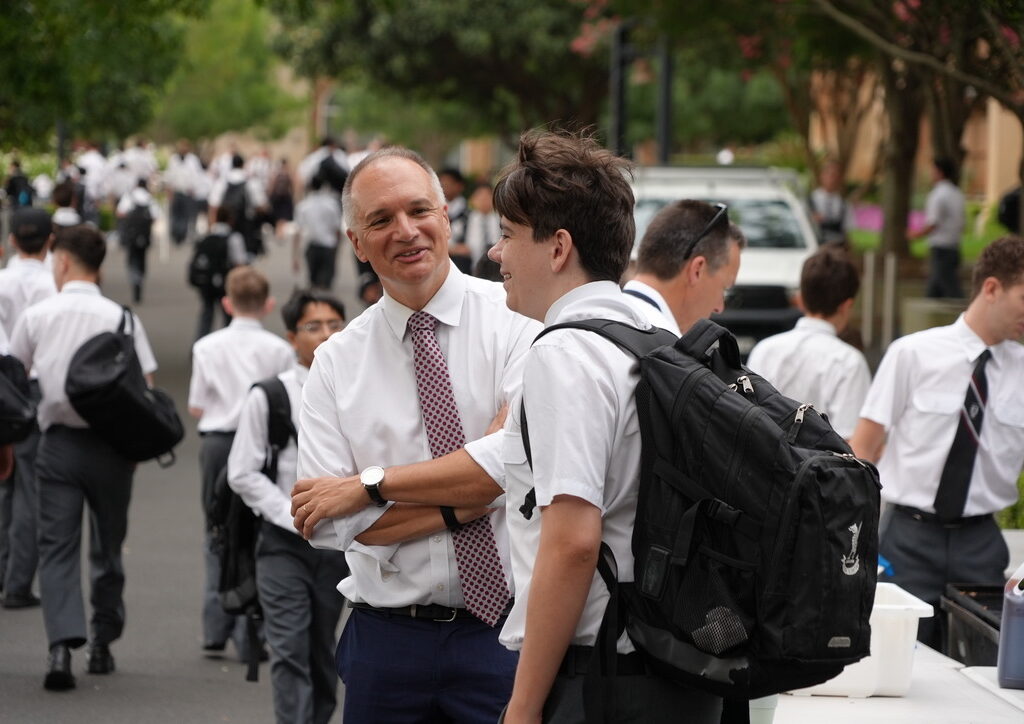Encouraging students to read – Year 9
Encouraging students to read – Year 9
Dear Year 9 parents and carers,
At Newington we continue to be committed to keeping (or getting) your son reading. We believe that all three features of the inspired mind in the Wyvern – curiosity, open-mindedness and rigour – are best fed by a bunch of books. Reading is its own reward as something that powers imagination and empathy for others. It also fundamentally helps with other skills such as writing development, vocabulary and the very act of concentrating properly (it is certainly a more sustained use of leisure time than doom-scrolling through TikTok or Instagram). There are so many studies that show reading is a key part of educational development that it is almost a truism.
Getting kids to read is tougher than it was a decade or a generation ago (and it was pretty tough then). In most cases it will take a joint effort between us – the school and the home.
What we are doing about it.
We have a ‘Headmaster’s reading list’ with about 70 books that I think will really appeal to teenagers (and that I have read myself; see below for those books particularly suited to Year 9 students). We have a dozen or 20 copies of each book, so that plenty of them can be borrowed yet still have plenty available in the library.
We refitted the upstairs part of the library to make borrowing and reading these books even easier.
Today during Period 3, the School Senior Prefect Aidn Carter, the School Deputy Senior Prefect Ryan McPhail and I spoke to your sons about the importance of reading books and spruiked about a dozen books from the list. Each boy filled out a sheet, which you will also find at the bottom of this letter, saying which books he would like to read this year.
Then the books were made available to borrow in the library. The classes are going to be booked in regularly to the library this year during English classes to return, borrow and read these books. Of course boys are every bit as welcome to read some of the other thousands of books in the library or books from anywhere else.
What you can do about it (doing all of them is great, but doing some of them is much better than doing none)
- Hopefully at the dinner table tonight, or over the next few days, you could follow up by asking about the books we spoke about.
- You could find or maintain a dedicated time for your son to read. The best time is often the last half hour or hour before bedtime.
- Put their phone somewhere else for this time. I can’t stress this enough. If they can’t live without their phone for this hour, have a chat to the phone version of alcoholics anonymous.
- You could read some of the books yourself, or be seen reading your own books, so that your son sees it as a family habit.
Reading as a part of a balanced life is as or more important than it has been for centuries. It is a legacy to your children and to our students. I hope that we all are able to make a difference to how much and what they read.
Go well and good luck,
Michael Parker.
Midnighters Scott Westerfield
Robert Langdon series Dan Brown
Jack Reacher series Lee Child
George Smiley series John Le Carre
The Jersey – The Secrets Behind the World’s Most Successful Team Peter Bills
The Happiest Man on Earth – Eddie Jaku
Into Thin Air – Jon Krakauer
The Whole Business with Kiffo and the Pitbull – Barry Jonsberg
The Messenger – Markus Zusak
The Belgariad – David Eddings
Remembrance of Earth’s Past trilogy – Cixin Liu
The Lord of the Rings series – J.R.R. Tolkien
How to Build a Time Machine – Paul Davies
Status Anxiety – Alain De Botton
21 Lessons for the 21st Century – Yuval Noah Harari
Factfulness – Hans Rosling
Cosmos – Carl Sagan
Gone – Michael Grant
Ice Station – Matthew Reilly
1984 – George Orwell



